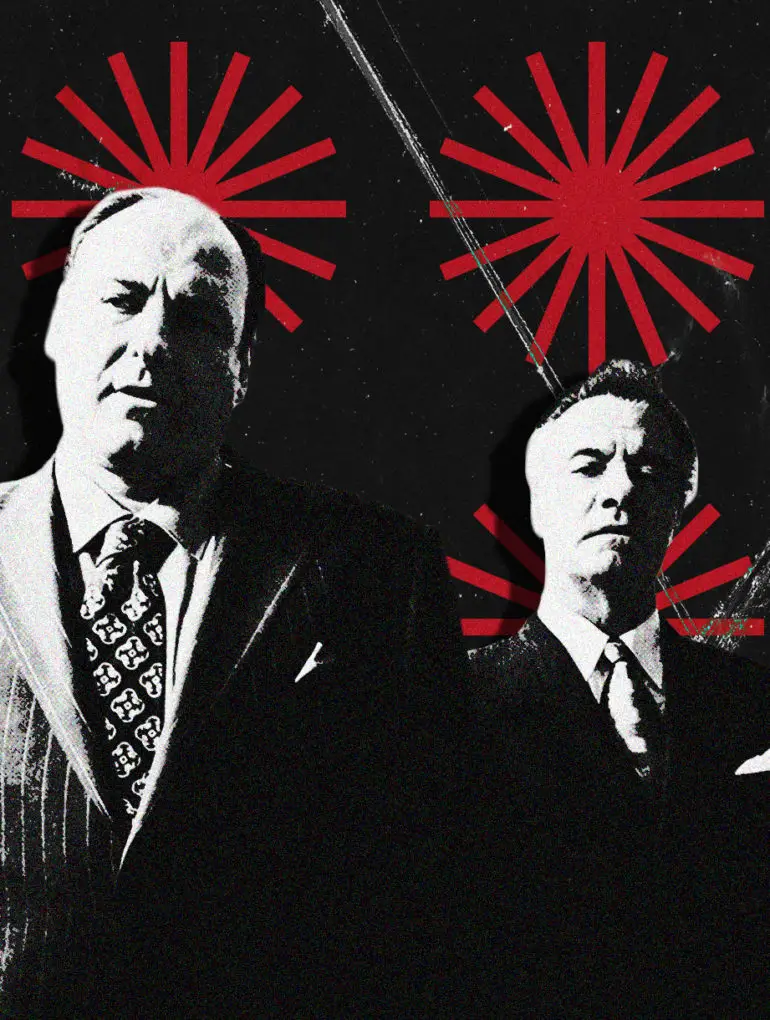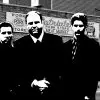For much of the past two years, leading up to the release earlier this month of the prequel movie, The Many Saints of Newark, there’s been a continuing nostalgia kick for The Sopranos.
First, HBO Go, HBO Now, and eventually HBO Max made it very easy to watch the entirety of the original series on any device with relative ease. When the series was still on TV, watching it required either waiting for episodes to come around on HBO or expensive DVD sets.
The 20th anniversary of the series’ debut rolled around in 2019, occasioning marathon showings of the series on HBO, the publication of multiple books, the launch of several podcasts, and the first-ever Sopranos Film Festival. The following year, the pandemic and its stay-at-home orders encouraged many people to re-watch the entire series, or in some cases watch it for the first time.
Many of those who did that noticed that the series holds up remarkably well. From the writing to the acting to the filmmaking, none of it feels dated, nor does anything currently on television quite measure up. And the series also seemed to anticipate some elements of cultural decline that would come to pass in the ensuing years.
And now that the long-waited Many Saints of Newark movie has arrived, the Sopranos nostalgia has resurfaced, with many once-again re-watching the series to get caught up.
Reassessing The Sopranos
The Sopranos is one of the most critically acclaimed TV series of all time, and it changed all sorts of things about television, from what has developed afterward to what could be achieved by what used to be considered a movie channel.
However, amidst all of the modern-day appreciation of the series, one thing has been largely forgotten: While The Sopranos was on the air, there was always a significant backlash against the show, from his purportedly biggest fans. And in fact, a certain percentage of its audience seemed to be watching a different show than the rest of us.
Everyone remembers the negative reaction to the series finale. But it can be easy to forget that there was an angry backlash against The Sopranos as soon as its second or third season. There’s been a lot of revisionist history, but it’s easy to forget that for considerable chunks of The Sopranos‘ run, large segments of the show’s fanbase were in open revolt against it.
While The Sopranos was on the air, there was always a significant backlash against the show
The Sopranos was about the Mafia, but at the same time, it was about much more. It concerned masculinity, ethnic identity, class divides, family dynamics, psychiatry, and about a dozen other things that have been explored much more overtly by popular culture in the years since. And it did it with top-tier acting, superior filmmaking, and some of the best writing in the history of the medium.
Sure, The Sopranos‘ approach to gangster life echoed that of the Godfather movies and the crime film canon of Martin Scorsese, in that Mafia plots are exciting to watch, and the life of a don in La Cosa Nostra can be glamorous. But at the same time, it’s a life that slowly rots one’s soul, and seldom, if ever, ends happily. “Dead or in the can” is how Tony Soprano (James Gandolfini) saw his own endgame, although his actual fate, of course, was left ambiguous.
The People vs. The Sopranos
But a lot of people who watched The Sopranos saw something else. They were the people who not only seemed to see Tony as an unadulterated hero but watched the show for one reason — to watch Tony Soprano whack people — and considered any episode or plot arc a failure if that didn’t happen. Then there was the rage over, say, Chase never tying up the loose end about the Russian in the woods (I always viewed that decision, which cast something of an ominous pall over the rest of the series, as a masterstroke).
Sometimes it got even uglier, with online fans expressing outrage, in particular, at any major storyline that centered on the female characters.
The quintessential text of this was a New York Post story in 2002, with the headline “WHACK SOMEBODY! — ‘THE SOPRANOS’ HAS BECOME AIMLESS AND DEADLY DULL. IT NEEDS A NASTY DEATH – FAST.” Soon after, the same newspaper ran a poll about “How to fix The Sopranos,” and answers included “kill all the women” and “Carmela’s whining too much—whack her!” And this was during the fourth season, which in retrospect was one of the series’ better runs.
Two years later, during the Sopranos’ fifth season — probably its second-best, after the first — then-ESPN columnist Jason Whitlock called for HBO, in the tradition of a coach firing, to remove David Chase from The Sopranos and replace him with The Wire creator David Simon.
“We watch for the violence, the perversion, the betrayal, the affairs, the crimes,” Whitlock wrote. “Chase thinks we’re watching for the psychobabble spewed between Tony Soprano and Dr. Melfi. We’re not. As much as I’ve enjoyed Lorraine Bracco’s nude scenes, Dr. Melfi could get whacked this Sunday and I’d throw a party.”
this fan backlash has since been repeated again and again in all sorts of fandoms
On top of the bloodthirsty sexism, these people seemed to forget that if major characters got whacked constantly, it wouldn’t be special anymore, and they’d also quickly run out of characters.
Just as The Sopranos itself anticipated a lot of what was to come with television, this fan backlash has since been repeated again and again in all sorts of fandoms. It’s a toxic combination that ties an aggressive strain of misogyny with boundless entitlement on behalf of “fans.”
David Chase, to his credit, never seemed to care about the opinions of most of the fans of the show, especially the ones who were angrily and ignorantly misreading The Sopranos. He even ended the original series in the most fan-unfriendly way imaginable. It’s actually shocking how much fan service the Many Saints movie has, although of course, we don’t learn Tony’s ultimate fate.
Yes, it’s good that history has largely vindicated The Sopranos, and that it’s more accessible to watch for more people than ever before. But let’s not pretend that everybody was always happy with the show all along the way.
If The Sopranos was made today…
Meanwhile, the intersection of The Sopranos and modern-day “wokeness” was the subject of some particularly humorous Twitter discourse the week of the movie’s release.
“If they made The Sopranos in today’s woke society,” the comedy account Pixelated Boat said, “it would be about Tony Soprano going to therapy.”
His reply guys joined in, with other things that actually happened on the real show: “And they’d do super affected artsy stuff like have a guy escape from the mobsters in the woods but then literally never mention it ever again” and “I’m sure they’d even be forced to include a gay mafioso!”
“They’d get offended and shut the show down, I bet, at some point it would be mid-scene and then nothing — and no explanation from anyone as to why.”
It’s great to have the Sopranos universe back, and in such a way that not only fills in some backstory but delves deeply into the societal events, in Newark and else, that shaped these characters. Whether the new movie is a hit or a flop — and there appears to be some controversy on the matter — the show’s legacy is secure.




